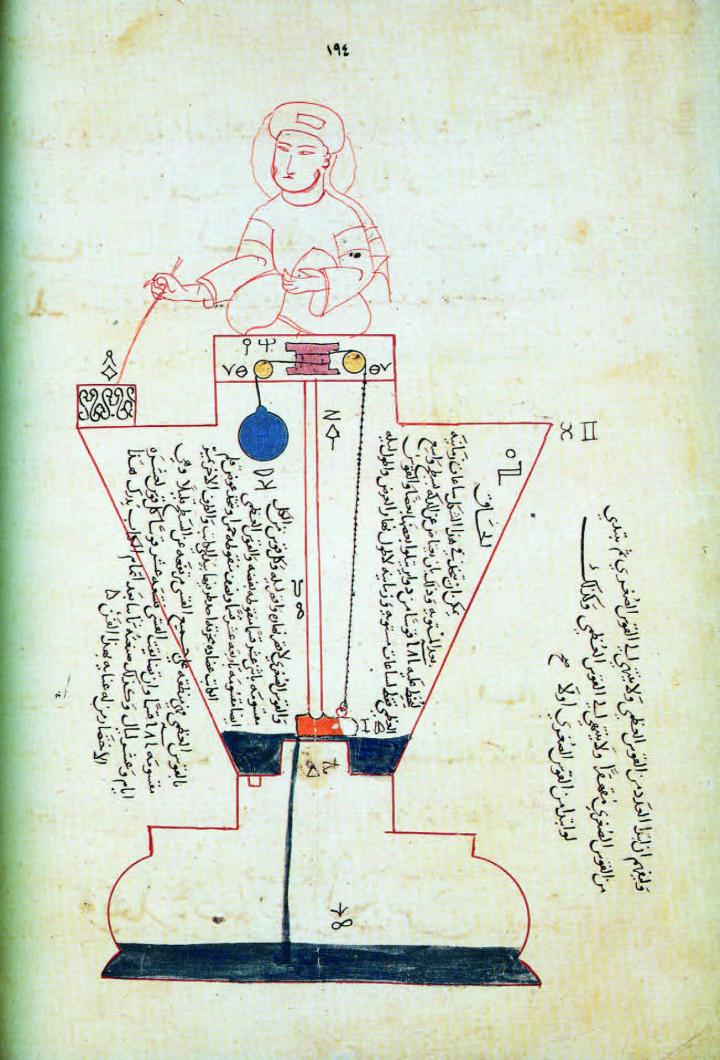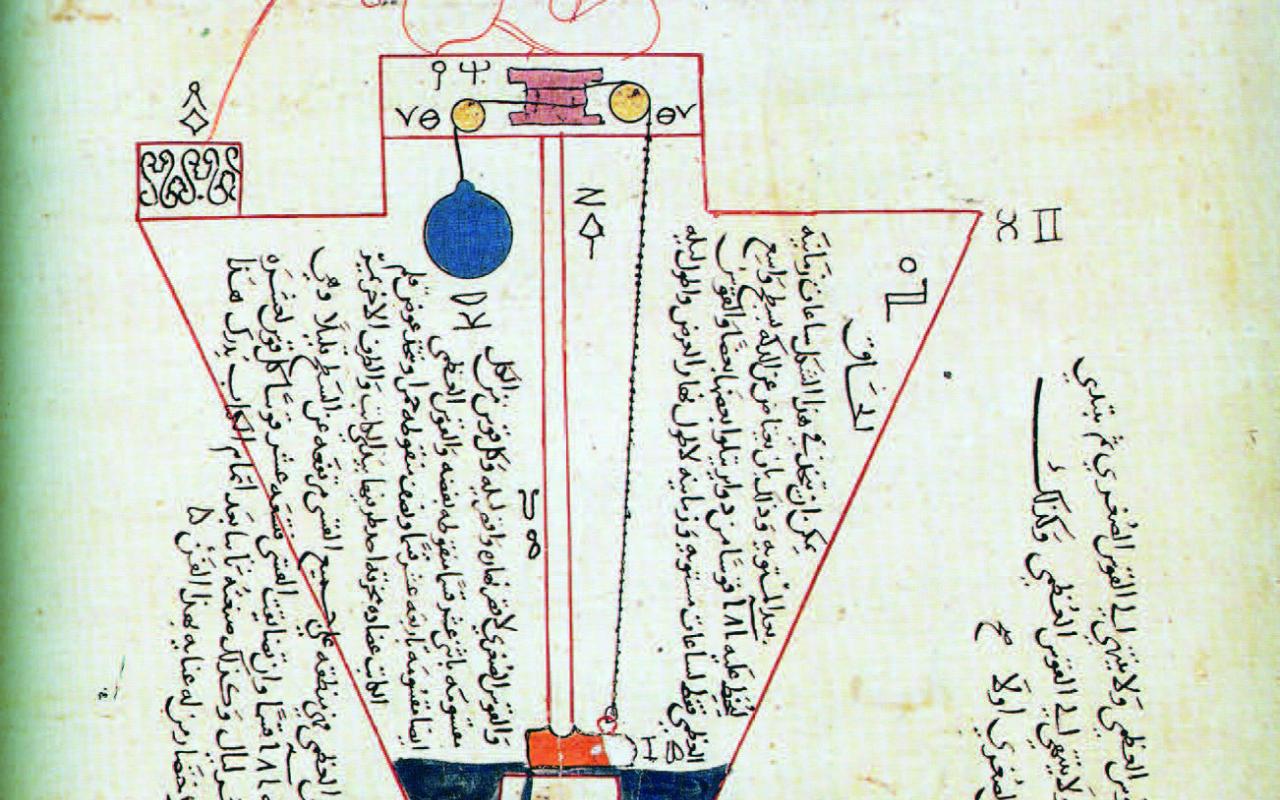Badīʿ az-Zaman Abu l-ʿIzz ibn Ismāʿīl ibn ar-Razāz al-Jazarī
al-Jāmiʿbayn al-ʿilm wa-‘l-ʿamal an-nāfiʿfī ṣināʿat al-ḥiyal [Compendium on the Theory and Practice of the Mechanical Arts]

- Artists
- Badīʿ az-Zaman Abu l-ʿIzz ibn Ismāʿīl ibn ar-Razāz al-Jazarī
- Title
- al-Jāmiʿbayn al-ʿilm wa-‘l-ʿamal an-nāfiʿfī ṣināʿat al-ḥiyal [Compendium on the Theory and Practice of the Mechanical Arts]
- Year
- 1206
- Medium / Material / Technic
- Digital copy of the manuscript from the Süleymanuye Library, Istanbul
-
Al-Jazari was an inventor, mechanical engineer, artisan, and artist living in Mesopotamia during the late phase of the Islamic Golden Age in the second half of the twelfth century. He is best known for writing »The Book of Knowledge of Ingenious Mechanical Devices«, which was translated into a number of languages between the thirteenth and nineteenth centuries.
Unlike the Banū Mūsā, al-Jazari stood primarily in a tradition of artisanship rather than one of philosophy and science. He constructed his machines using practical experience, eschewing theoretical calculations. According to science historian Otto Mayr, the style of his drawings and writings resembles that of modern DIY instruction books. He was familiar with the Banū Mūsā’s »Book of Ingenious Devices«, and it is one of several sources to which he makes reference.
Though his work is not quite as groundbreaking as that of his more famous precursors, al-Jazari does describe several truly innovative devices, techniques, and components. A particularly spectacular example is his »Elephant Clock«, which produced various signals after certain time intervals, such as an elephant rider striking a cymbal or a mechanical bird chirping. Al-Jazari also developed the first water clock that accurately recorded the passing of temporal hours to reflect the changing length of the day throughout the year. However, his most important ideas and most innovative components are found in his descriptions of water-raising mechanisms.
